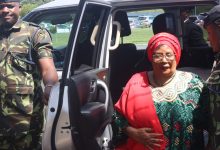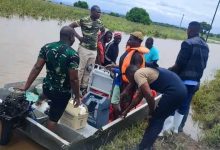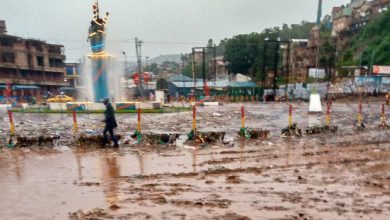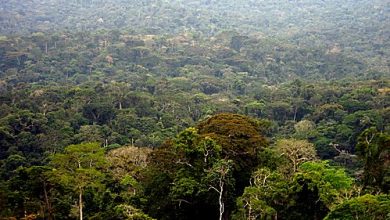COP28: In Dubai; DRC government signs an agreement with Okala to restore lost biodiversity.
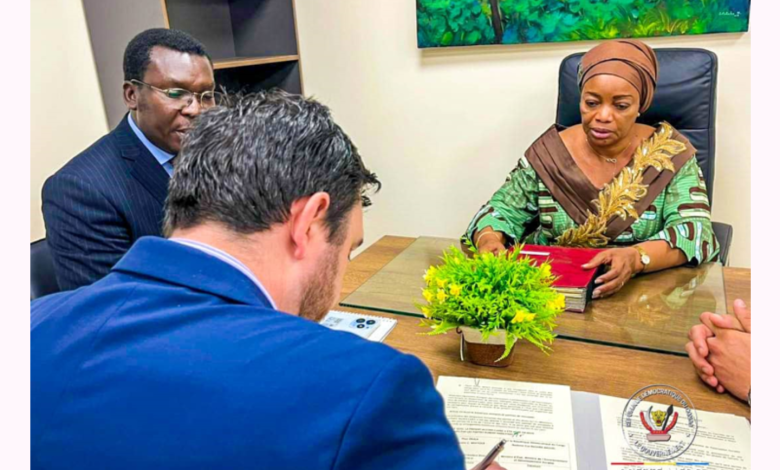
Goma, 7 December 2023
By Prosper HERI NGORORA
The Congolese government has signed a deal with tech company Okala aiming to preserve and restore Congolese forests, reversing biodiversity loss and restoring forest that sequesters carbon.
On behalf of DRC, it’s Eve Bazaiba, minister of environment and sustainable development who signed the agreement.
The agreement will run to 15 years, Okala investing 40 million US dollars in during the first five years.
“The Democratic Republic of the Congo-Okala partnership will measure and value biodiversity and carbon assets. This deal will close the nature finance gap and bring the economic benefits of natural capital wealth into the hands of the Congolese people” said Dr Robin WHYTOCK; the CEO of Okala.
Okala will collect high-resolution baseline biodiversity and carbon data using a combination of remote sensing and thousands of ground-based sensors deployed across 12 million hectares of national parks, reserves and other land.
In this partnership with DRC, Okala will use the data to issue high-integrity nature credits that will be sold on national and international natural capital markets.
According to conservative forecasts, these nature credits can generate 700 million US dollars in long-term value, with revenue shared among local communities, national parks, the DRC government and science partners.
“That partnership is an opportunity for the DRC. It shows that there is progress in lobbying. Such initiatives are so interesting. We congratulate Congolese negotiators at the COP28 who are working hard so that DRC gets such opportunities. It’s very good at they will exploit a 12 million hectares area” says John Katikomo, a climate activist based in Goma, Eastern of DRC.
Some concerns about local communities benefits from that project, transparency needed
Some observers in environment issues always want the government and its partners to implicate local communities in all projects aiming to struggle against climate change.
John KATIKOMO wants to see local communities being at the center of all initiatives in the partnership between Okala and Congolese government.
“The great question is: will the residents benefit really and directly from this project. My concern is about indigen people. It’s not the first time that the DRC gets a financial deal related to environment. The problem is that the population doesn’t get advantage. The fund can be delivered but it can finish in bureaus. You know in DRC, a project can be announced, you can see just signs here and there. And they will tell you that the project is finished. As the project will last 15 years, we want good outcomes. We don’t want to see the money in politicians or enterprises account. We want the residents to be the first beneficiaries” he insists.
According to FAO report, the DRC has about 152.6 million hectares of forested land which constitutes 67.3% of the total land area.
Tropical forests cover about 37% of the land, dry forest 19%, swamp forests 4% and mountain forests 2%.
But due to some factors as use of woods, the use of coal and so on, the Congolese forests are under threat.
To reduce pressure on the its forests, the Congolese government has launched quite number of initiatives.
Some of them aim to diversify energy sources as solar power plants, hydroelectric power plants, access to improved cooking stoves…
And a great challenge is that only 15% of Congolese people has access to electricity, which remains another issue on Congolese forests.
The agreement keeps on top DRC as country-solution in fight against climate change.
“The Okala-DRC deal represents one of the largest combined biodiversity and carbon data partnership in Africa between government and the private sector. Given that the DRC is considered crucial in the fight against the global climate crisis, with its fragile rainforests and vast peatlands, this partnership presents an unparalleled opportunity to tackle the climate and biodiversity crisis head-on while bringing benefits to the Congolese people and environment” said Robin Whytock, CEO of Okala.
Okala is a team of engineers, scientists, nature markets and field experts. It works in developing and deploying technologies to support conservation action.
This story was produced with the support from MESHA and IDRC Eastern and Southern Office for Science Journalists reporting on COP28.

